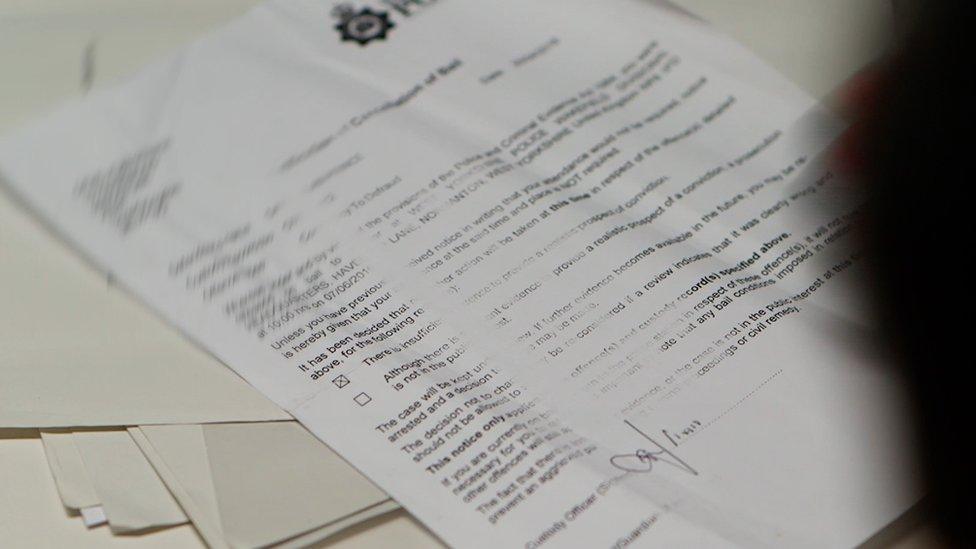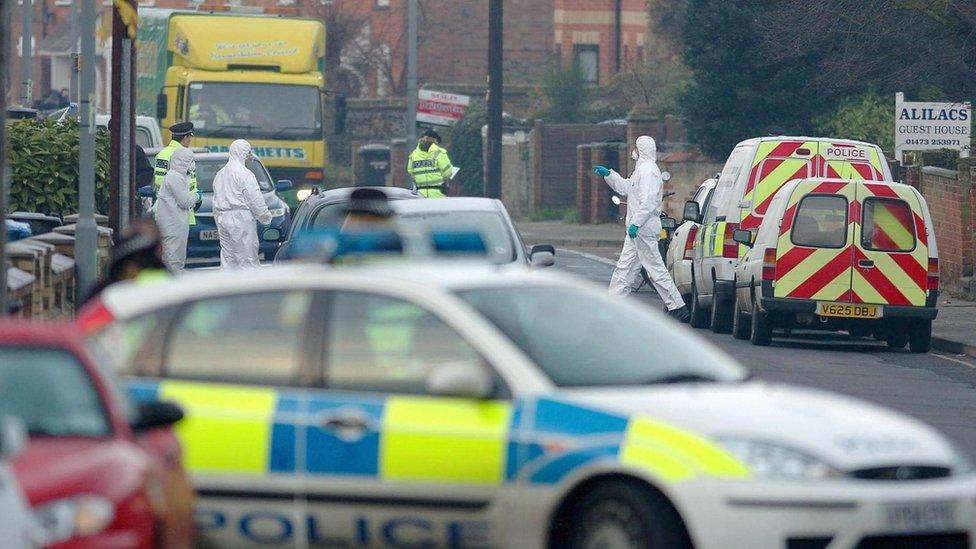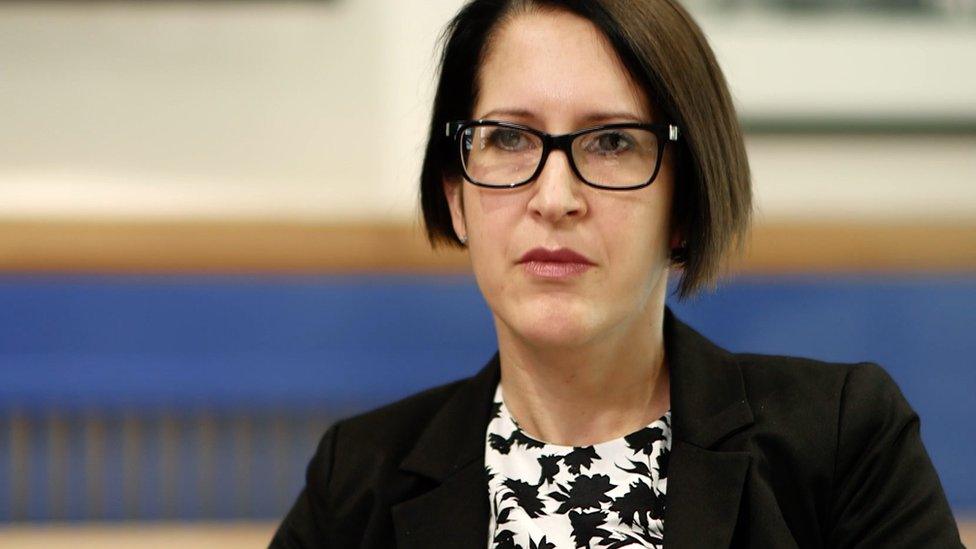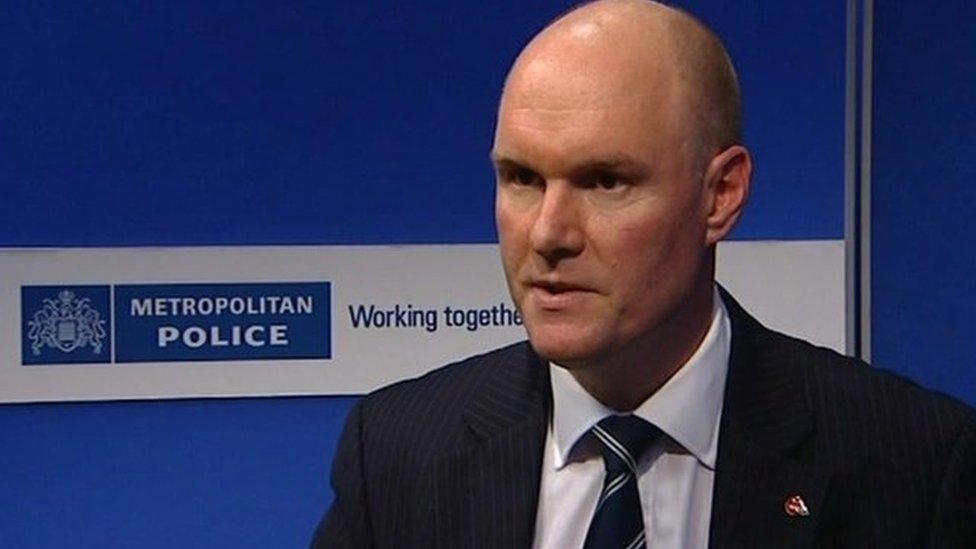Pre-charge bail: 'Years of waiting left me feeling suicidal'
- Published
David Prince tried to kill himself while on police bail
People kept on police bail for months, or even years, say it left them feeling suicidal and unable to move on with their lives. New rules have changed how long people can be bailed for, but will it have the desired effect?
"I was in a terribly dark place. You lose all dignity, you lose all purpose," David Prince tells the BBC's Victoria Derbyshire programme.
He is describing the effects of being on police bail for two years after he was caught up in a complex fraud case.
It began on a business trip to Gibraltar - when his card was declined in a restaurant - and ended with his bank accounts being frozen by police and about 50 personal possessions confiscated.
"It had a terrible effect on my life. I had no money to live off, I sold anything of value," he says.
"I became very depressed. A few months after that I attempted to commit suicide."
'Limbo'
During his time on bail David tried to kill himself three times.
Yet he was never charged with a crime, saying he was instead "left in limbo" as police investigations continued.
He was eventually cleared of wrongdoing when police sent him a letter saying there was "insufficient evidence" to take the case forward.
But he remains "angry" about the length of time he was put on bail, saying there has been "no-one to answer for it" at the police.

David was informed the case against him had been dropped, in a badly printed letter
Police use pre-charge bail when they have questioned a suspect, but need more time to continue investigating.
Previously a suspect could be kept on police bail for any length of time - subject to specified dates at which police had to report on the case's progress.
But last month, a new 28-day limit was introduced in England and Wales.
It followed criticism of people being kept on police bail for months or years during high profile investigations such as Operation Yewtree - into historical sexual abuse - and phone hacking.
Suspects complained they had been subjected to long periods on police bail and unnecessarily protracted police investigations.
Under the new rules, police bail in complicated cases can only be extended for up to three months with the authorisation of a senior police officer or, beyond that, by applying to a magistrate.
Mental health
But Steve - whose surname we are not using - says the new rules may hinder, rather than help, the speed of his case.
Steve is accused of making explicit images available online without the consent of the person shown in those images, and has been on police bail for nine months.
He has had his bail extended by police on five occasions and says it has had a severe effect on his mental health.

People complained they have been left on bail while police investigations continue
He fears people - who like him can be left on indefinite bail under the old rules - could suffer as police officers instead prioritise fresh cases involving those who are subjected to the new 28-day limit.
"I do believe I'm going to be put further and further back, while they deal with people on the new scheme," he says.
The Home Office says the change ends the "injustice" of people "being left to languish" on pre-charge bail.
Home Secretary Amber Rudd last month said the important reforms will mean "fewer people are placed on bail and for shorter periods".
"They will bring about much-needed safeguards - public accountability and independent scrutiny - while ensuring the police can continue to do their vital work."
'Stench of wrongdoing'
But Calum Macleod, vice-chairman of the Police Federation - which represents rank and file police officers - described the new time frame was "simply not realistic".
"It's going to create bureaucracy issues for officers who are never going to meet the timescales."
He sympathises with individuals who are held on bail for long periods of time, but says gathering evidence sometimes "takes longer than we would like".

Ruth Harris said suspects would be left with a "stench of wrongdoing"
He says the "unintended consequence" of the new rules will be that people are released from custody with no bail conditions, but are still subject to police inquiry.
This would mean suspects would not be cleared after 28 days and - unlike the current system - there would be "no timescales" in the case.
Criminal defence lawyer Ruth Harris said the new system also risks leaving people with "no way" of clearing their name.
"They'll be released with this stench of wrongdoing surrounding them, but no date on which they can imagine the case will be resolved, and no way of challenging police on the tardiness of matters
"These are people who have been identified as subjects by police. Often they're identified quite publicly, in a way that affects their relationships with family, job prospects."
This she says, could mean investigations take longer.
Watch the Victoria Derbyshire programme on weekdays between 09:00 and 11:00 on BBC Two and the BBC News channel.
- Published3 April 2017

- Published28 September 2016

- Published12 November 2015
